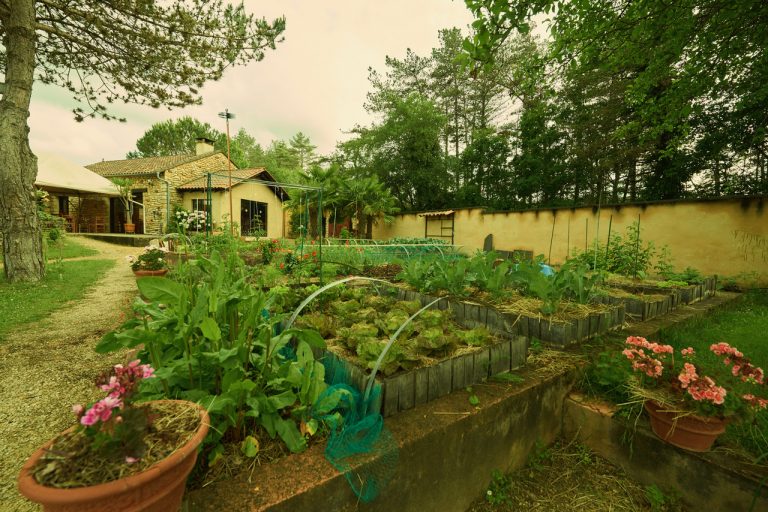
“My life unfolds itself, as it is.”
Sando Kaisen grows vegetables in a natural way on a vegetal cover, just as the forest has done for millions of years, without digging into the earth, without plowing, hoeing, weeding or composting, without any input, be it chemical or even biological, and with the minimum of watering. It could be said that he practices “permaculture”, but he prefers to say that he has put himself at the service of nature: demanding nothing from it, while protecting it and creating the conditions for the most complete biodiversity possible. He does not call himself a gardener, either. He simply offers to the living world the fruit that only the Boundless Heart can offer.
“I have studied a lot but, in the end, it is nature that is my greatest Master, because, unlike people, it is not artificial, does not lie, promises nothing, does not seek to become a master or to control anything. Nature is very vulnerable because it is forced to accept everything that happens to it.”
Nowadays people and monks delude themselves into thinking that they possess the true Zen, especially if, seeking power and recognition, they pursue confirmation by Japanese authorities.
Sando Kaisen often says: “I see my own face in nature and in the smallest insect. Trying to grasp the emptiness of the spirit while striving to see buddhahood in the phenomena means going astray, since objects are devoid of nature. The objects are like dreams. Seeing the buddhahood in objects is the province of the awakened ones, but then the objects are no longer objects, but the awakened ones themselves. And in the end, it is neither them nor the objects, it is the Dharmakaya, the unique body of the Buddha without birth.
“I don’t care about the honors, and I don’t care what people think of me. I have transmitted the spirit of the Great Mokudo Taisen Deshimaru but the vegetable garden mocks it.”
“The old Siberian bear is contemplating straw beds in the peaceful snow.”
